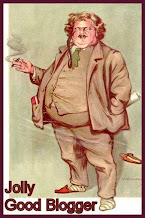 Anmeldelsen som slo mest i dag var fra Wall Street Journal, nærmere bestemt Reflections on the Revolution in Europe - Can Europe be the same with different people in it? av Christopher Caldwell.
Anmeldelsen som slo mest i dag var fra Wall Street Journal, nærmere bestemt Reflections on the Revolution in Europe - Can Europe be the same with different people in it? av Christopher Caldwell.Ikke uventet handler det om verdier og vanetenkning, skyld og skyldfølelse. Og siden valgkampen er over, drister vi oss igjen frempå med innvandrings- og integreringsordet.
Ikke minst fordi utfordringen vel så mye er møtet med andre verdier, som at vi ikke klarer å definere våre egne.
Og skulle vi komme i skade for å snakke høyt om "kristne verdier" (korse seg), skytes vi fort ned av tiår med klare meldinger om at disse ikke er noe forskjellige fra hva vi finner i andre kulturer eller livssyn.
Tilliten til egne verdier styrkes nok ikke av at vi stadig får høre det litt motsatte budskapet om hvor mye vi har å lære av alle andre.
Today's immigrants might be considered hostile to European values, except that Europe itself increasingly has only a foggy sense of what those values might be.Det virker med andre ord som om dette ikke er en bok som snakker så mye stygt om enkelte innvandringskulturelle trekk, som om hvordan Europa har vært helt uforberedt ikke bare på sosiale effekter, men på verdimessige utfordringer.
"When an insecure, malleable, relativistic culture meets a culture that is anchored, confident, and strengthened by common doctrines," Mr. Caldwell writes, "it is generally the former that changes to suit the latter."
Saken bedres ikke mange grammene av at vi har vært for lite bevisste på hva som egentlig er europeiske verdier, og hvordan de skal begrunnes og forsvares - rasjonelt og redelig, og ikke bare ved romantisk nostalgi. Som Bruckner og andre har pekt på, har tvert i mot politiske ledere og kulturradikale i lang tid mislikt og forsøkt å (over)kompensere for alt som lukter kristenmannsblod og kolonihistorie.
He also ruminates on far more than the increasing radicalization of generations of Muslim immigrants. Just as Edmund Burke's "Reflections on the Revolution in France" (1790) predicted a dire fate for the mass insurrection then aborning, Mr. Caldwell looks with alarm at Europe's continuing rejection of itself. Without a rejection of the religion and culture that sustained Europe for centuries, he says, the immigration troubles might never have occurred, or at least would not have been so severe: His verdict is suicide rather than murder.Og det blir verre. Slik Caldwell vurderer situasjonen kan postmoderne tvilere uten dypere trosforankring få dratt teppet vekk under beina på seg av hengivne tradisjonalister.
The author notes that even the prominent German philosopher Jürgen Habermas, who is an atheist, has acknowledged that "Christianity, and nothing else, is the ultimate foundation of liberty, conscience, human rights, and democracy, the benchmarks of Western civilization. To this we have no other options. We continue to nourish ourselves from this source. Everything else is postmodern chatter."
Yet much of Europe has discarded its historic religious underpinnings as irrelevant at best, harmful at worst. Even the memory of what a religiously ordered society was like has seemed to disappear, Mr. Caldwell observes. "A good definition of religion" for most modern Europeans, he says, might be "an irrational opinion, strongly held."
Most European elites, though, have not debated seriously the potential effects of introducing into this land of postmodern chatter millions of devout believers in another religion, one previously seen as antagonistic to European culture. As Mr. Caldwell says, Europe's elites seem hardly to have considered that the ethical views they pride themselves on have little meaning when divorced from Christian origins.Bak i buskene lurer den ubestemmelige, men sterke skyldfølelsen som Caldwell mener fører oss i retning av hva han polemisk nok kaller et "sekulært selvmord".
Many Europeans are determined to defend their values — witness France's ban on headscarves in schools — but it is hard to defend what you cannot define. "There is no consensus, not even the beginning of a consensus," Mr. Caldwell writes, "about what European values are." When the Netherlands decided not long ago to try to define its values and inculcate them in prospective new residents, it ended up producing a ghastly naturalization packet that included a video that featured "gays expressing affection in public, and bare-breasted women on the beach." Welkom, immigrants!
In his reflections on Europe's slide into a sort of secular suicide, Mr. Caldwell notes the key role played by that most religious impulse: guilt. He argues that the dominant moral mood of postwar Europe was "repentance for two historical misdeeds, colonialism and Nazism." Over the decades, guilt has festered into "a sense of moral illegitimacy" and a "self-directed xenophobia" that now shapes the continent's response to immigrationCaldwell ser dessverre ingen klare svar. Han hopper ikke på noe kjent politisk tog. Hans kall er kun at spørge.
Selv om spørsmålsstillingen er ganske så ledende.





















